A SPECIAL POST BY MARIJKE VAN DE WATER, B.SC., DHMS
Question: I was told by an animal nutritionist that I should give my mare oil to help her coat and thin condition. I have also heard that oil is not good for horses? Why would that be? He did not recommend one over the other.
Answer from Marijke van de Water: Your animal nutritionist is recommending canola oil, corn oil, or some other vegetable oil to fatten up your horse. This recommendation is based on the fact that fats provide energy in a very concentrated form thus making it very difficult to burn off quickly. Fats are very slow to metabolize. One calorie of fat is equivalent to 3 pounds of oats or 6 pounds of hay. Very dense indeed. But is a daily feeding of 1/2 to 1 cup of oil from questionable sources a healthy cure-all to weight gain?
Vegetable oils in this form are poor-quality oils, all of which are polyunsaturated. This means that these oils are unstable with very poor resistance to heat and/or light. They easily release free electrons which are the culprits in free radical damage. The resulting cell damage is implicated in cancer, heart disease, and other chronic diseases related to aging and unless you buy organic many corn and canola crops are genetically modified as well.
It is significant that horses have no gallbladder – they don’t need one! The natural equine finds no puddles of concentrated fat in his foraging and if he/she did the reaction would be a “what in the heck was that?” lip curl. Can you imagine drinking a cup of oil without your gallbladder? I drank 1/2 cup of olive oil (twice), a relatively healthy oil, over 2 or 3 hours with my gallbladder intact and I can tell you my liver never worked so hard. The gallbladder acts as a timer that shoots bile (bile digests fat) within 20 minutes of ingesting fat. Without it the liver releases bile at random and thus becomes easily congested and overworked with excess dietary fats.
Fats slow down the normal rate that the stomach empties its food into the intestine so adding oil to grain means that the digestion of grains is abnormally slowed down, thus affecting stomach overload, gut motility, adequate enzyme activity, and energy. Horses have a small stomach designed to empty quickly. That is the reason they eat almost continuously. Replacing grain/hay calories with fat calories means a significant loss in protein, fibre, and minerals.
The key to healthy weight gain is finding the appropriate grain/hay combination for your particular horse based on breed, lifestyle, and biochemistry; correcting any nutritional deficiencies; and ensuring optimum digestive function with good enzyme activity and the regular use of “Riva’s Remedies Probiotics”.
To detoxify a congested liver from excess oil take a daily supplementation of the “Riva’s Remedies Happy Horse”, as well as a course of “Riva’s Remedies Pro-Dygest” to remove fat/oil residue from the intestines.
Marijke van de Water, B. Sc., DHMS
Homeopathic Practitioner
Equine Health Consultant
Ph. # 1-800-405-6643
Email: rivas@nowcom.ca
Web: www.rivasremedies.com
Marijke van de Water is an Equine Health and Nutrition Specialist and Homeopathic Practitioner. She travels extensively for clinics and is a sought after speaker in North America.
You can view Marijke’s video on “Why Horses And Oil Don’t Mix” on Horseman’s U.com!
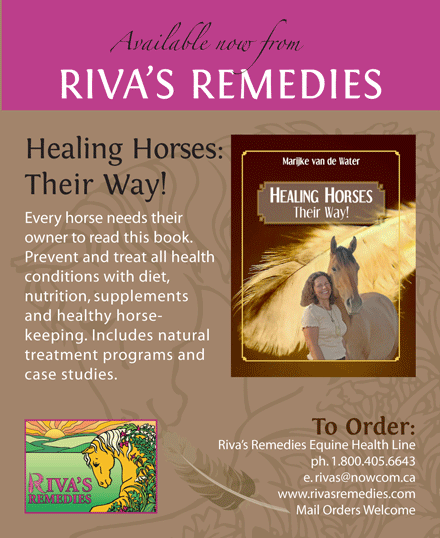

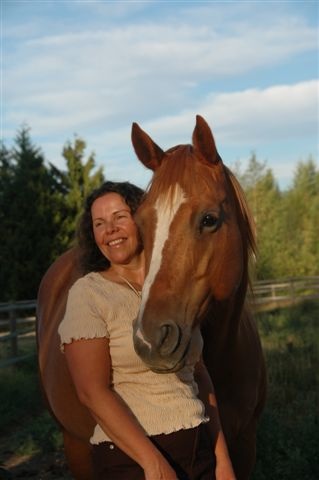

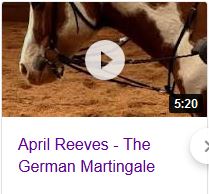
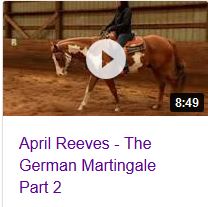
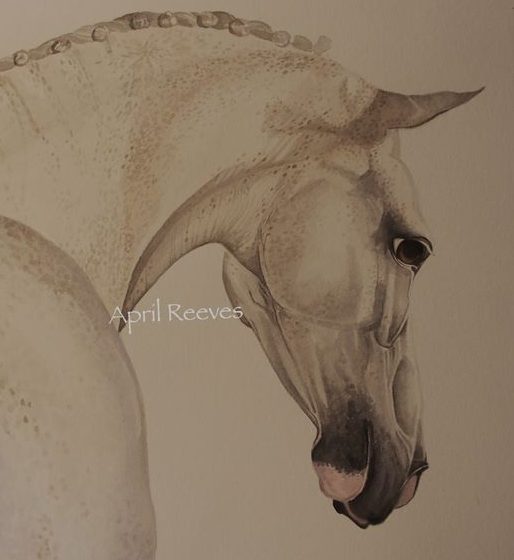
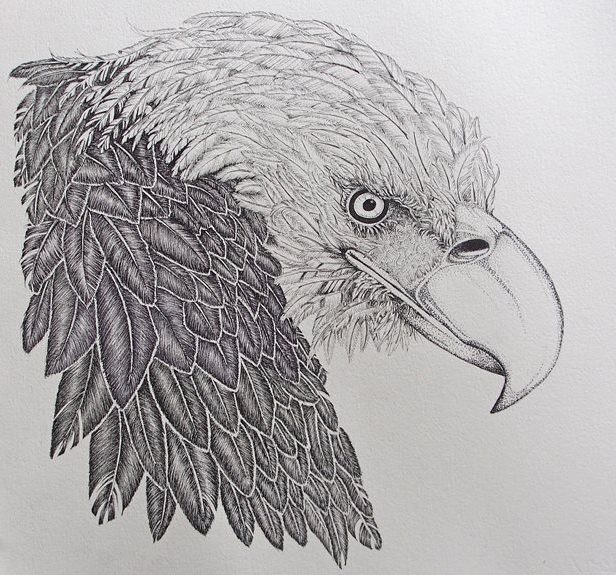

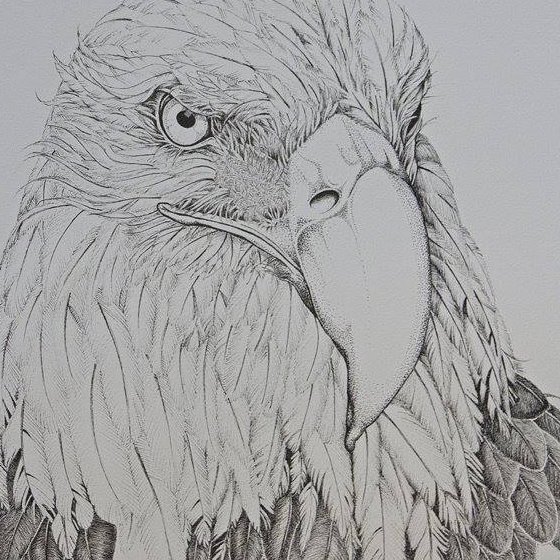

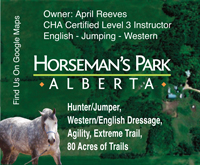


Cold pressed oils are not bad for horses. Grain is bad for horses. The end product of digestion is oil. You can use cold pressed oil. I have been useing oil for many years. I use cold pressed cannola oil. This oil is very well balanced in omega 3 and 6 fatty acids. Cold pressed oils are a great source of fatty acids. Many believe that oils can also prevent colic. I also soak my hay to remove sugars. Soaking hay for 1 hour removes 40% of sugar. I give my horse free choice hay. My horse recieves 1 cup of cold pressed oil a day. I also give real raw unprocessed sea salt for its mineral content. My horse recieves high levels of natural vitamin E and C. I give my horse a human grade mineral supplement by NOW. This mineral supplement has a great Calcium Phosphorus ratio and is human grade. Selenium and Vitamin A are also given all human grade as are B vitamins. If you want to learn about equine nutrition order the book by Eleanor Kellon VMD called Equine Supplements and Nutraceuticals. She also gives courses online and she is cutting edge. Also please dont put steel on your horses feet. All you do is make a farrier and Vet money by the health problems caused down the road as the interior hoof structure is destroyed by inflammation. Plus anyone who tries to give you advice and sell you a product afterward steer clear. I also suggest the web site safergrass.org…Lee
Lee, where are you getting your information from? Canola is GM, meaning it not only has been bred so farmers can spray pesticides, but each cell contains Bt toxin in levels 4000 times higher than nature. Not my choice what so ever, especially raw or cold pressed, when there are better oil products out there. While canola may have omega 3 and 6, so do other plant foods that horses eat as a natural diet. Also, horses are the only mammal without a gallbladder: the organ that processes oil. Horses are super vegans, and in their natural state, don’t eat it in quantities and don’t forage for it. The only thing it has done in large doses is cause fatty liver disease, a study from Germany (as their horses started dying unusually) that I’m trying to get my hands on.
Grain has it’s purpose, but I prefer not to grain as a first option. Again, I stay FAR away from corn and soy (GM).
I agree with soaking hay, but better than that is to find a farmer that will cut the hay in the late evening when the sugars are not running. Sugar is not the only product lost when hay is soaked.
How do you know your horse “needs” the supplements you give him? I find that humans are too quick to diagnose a horse in terms of human needs. Horses are quite simple in diet and needs. They eat what they lack as necessary, and that includes salt. I have never added mineral or salt supplements because my horses know their bodies needs better than I do. I’m interested in the path that led you to do this.
I totally agree with steel and feet: not a mix in any of my barns. And safergrass.org is a great site indeed!
To give canola oil or not? My 27 y.o Andalusion mare has arthritis and I am pondering the question! I would love any advise on diet or supplements to keep her comfortable and pain free. Thanks. Annie K
Canola oil is the very last thing I would give for arthritis (or anything), since it’s genetically modified (insecticide and herbicide) plus it’s oil. Having had mature broodmares (and Andalusians) I do know that older arthritic mares need to be out of extreme cold or wet, and need to move. Not ridden hard, just keep moving, so standing in pens and paddocks all day will acerbate the problem. As far as diet, I would leave that up to Marijke van de Water of Riva’s Remedies, as she is the one with several degrees behind her name and a reputation few have. You can find her at: http://www.rivasremedies.com/ or email her at: http://www.rivasremedies.com/equine/contactus.php
Tell her April sent you!
I have been researching PSSM and have been in contact with a vet at a University and she say’s fat is very important to these horses..a low sugar/high fat diet… what do you think? I have been feeding my mare vegetable oil.
Vegetable oil is the last oil I would feed a horse, personally: cheap and over-processed. Stay far away from soy or corn oils as well (GMO). Your horse would be better served by taking in a higher grade oil in less quantity, such as olive or flax (you need to keep up omega 3 and omega 6 levels). Horses need very little in order to be efficient. We look at them and their mass and believe that more is better. I’m not sure what quantity your horse is getting of vegetable oil but I can imagine it’s around a cup a day. Germany did a huge study a few years back, from all the horses that were dying of fatty liver disease from all the oil people were suddenly feeding, and concluded that oil was not a good thing to feed a horse. Humans cannot eat oil in consistent large quantities, and horses surely can’t, especially since they do not have a gallbladder to digest it (only mammal on the planet without one)! Oil is used in PSSM horses for an increased calorie count only, and flax or olive oil can accomplish this (1/4 ounce daily, spread between 2 meals). This vet should have explained this better to you. Vitamins and minerals are also important at this time. Triple Crown is my first choice for a balanced supplement.
Keeping the mare off of grass is very important as well.
There is a PSSM mare in one of the barns I teach at, and the mare only gets basic grass hay: no alfalfa. And no fat. High fibre is a requirement of PSSM feeding (which goes against the high fat argument).
And always I stress: let the horse move! Box stalls and outdoor paddocks do not encourage movement. Horses that are allowed to move freely all day long are usually free from diseases and health issues. They need to keep their feet moving to allow blood to work through the body efficiently, and the pressure points keep organs and vitals running in top condition.
I am reading that it is digested in the small intestine. What would you suggest for a PSSM horse where they actually appear better with the added fat (less episodes of tying up).
http://www.cvm.umn.edu/umec/lab/PSSM/home.html
I have done a ton of research on pssm , I have a horse with this , we have tried every diet know to alievate her condition we finally found this cure , she gets 6 cups of soy oil every day, I swear that’s what keeps her healthy and active , we feed alfalfa hay pellets and cubes ,grain or supplements would kill her , shes a new horse on this diet and been on it for a year and a half, she is 9 years old we have owned her for 8 , she is 16 hands heavy built, your research bothers me thinking she may end up with a short life ,
Terri, if it works then keep it. PSSM is not a laughing matter with horses as it is progressive. If the mare is happy, let it be. All I would say is that be aware of the potential problems modified oils and alfalfa cause. It’s one of those health issues that has a solution but that solution may not be a result of perfect health either. I feel for you, but I’m glad your mare has an owner who is serious about taking good care of her.
Soy is genetically modified, meaning the cells DNA contain high levels of Bt, a natural toxin used as an insecticide. However, in canola and soy (and other engineered plants), the Bt changes structure (truncated) and “expresses” prions (folded proteins) that are different from the natural structures. This new (novel) protein has had no testing to see whether or not our and our horses’ systems can assimilate, digest or even use this new protein properly. We have no idea if our bodies, and our horse’s bodies, will gather allergies to it, but there has been a lot of research done independently in Europe, and has been banned there in both crop production and foods. After last year, soy also contains up to 6-8 other “traits” of herbicide and fungicide modifications, and the chemicals used on these crops have now opened up to 2,4D and a host of toxic banned products that are not washed off before becoming oils.
If at all possible, try to locate a non-GM source of soy at least. There are organic soy oils, expensive I know, but worth a look. I have done a ton of work to acquire such products here in Canada, to the point I’ve opened a store on the farm to sell them. That way I also get my products for my horses at cost.
Marijke van de Water doesn’t suggest straight alfalfa as it’s dangerously low in fibre. If your horse’s urine smells like ammonia, alfalfa is the reason why. You can call Marijke and talk to her directly: her number is at the end of the post.
Coconut oil contains medium chain triglycerides (MCT) that are easier to digest, absorb and convert to energy than the traditionally used vegetable oils. It’s been reported to assist with ulcers, acidosis, colic and dysbiosis and is particularly helpful for horses on a grain-based feed.
There are organic, cold pressed, good sources
Hemp oil is a fabulous all rounder and has the right balance of 3-6-9. Google Hemp oil for horses.